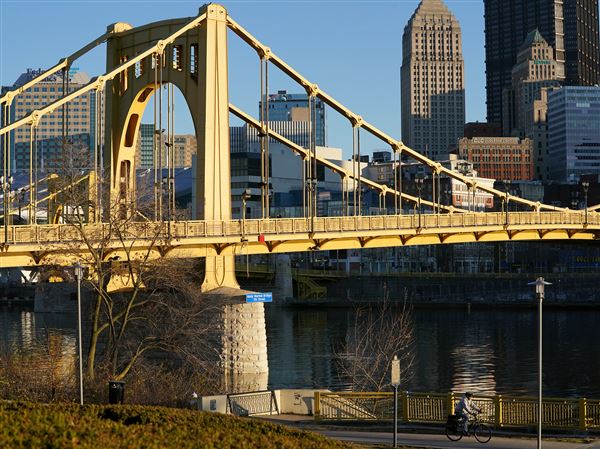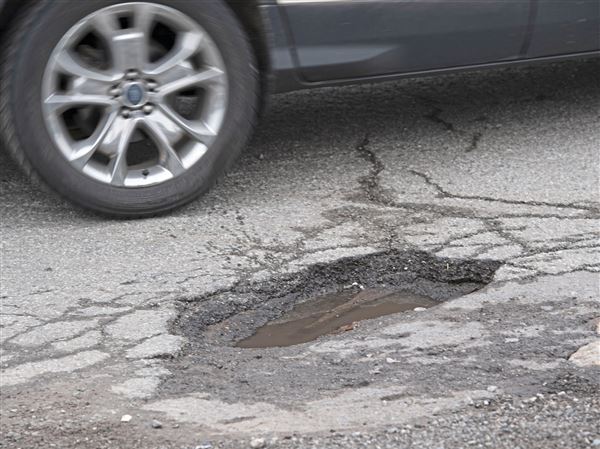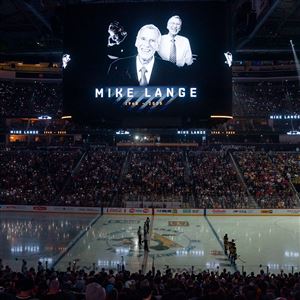Four members of the Department of Environmental Protection presided over a divided house Wednesday night at Washington & Jefferson College.
Every five minutes, either the left side of the room or the right would break into applause at the first southwestern Pennsylvania public hearing of the agency's proposed new oil and gas regulations.
Citizens who felt the regulations don't go far enough to control the shale gas industry in Pennsylvania outnumbered industry supporters at the meeting organized by the DEP's Environmental Quality Board.
The regulations are lengthy, but the same sections caught the attention of gas companies and their opponents. Among them is a provision dealing with companies' responsibility to remediate water impacted by their activities.
The DEP is proposing that drillers be required to restore the water to the state drinking water standard or to its pre-drill quality, whichever is better, and the industry opposes the idea. Companies say it's unfair to require them to improve the water beyond its pre-drill state. But most speakers urged the agency to require drillers to ensure impacted water is brought up to the federal safe drinking water standard, even it fell below that standard before gas activity began.
Many speakers opposed the use of open storage pits and the practice of burying drilling waste at the site of the well, which is allowed under the proposed standards. Some suggested that all well waste should be tested and potentially categorized as hazardous material.
Cynthia Walter of Greensburg took to the podium with an empty milk jug and urged the DEP to disregard what might be "inconvenient," "cumbersome" and deemed an "unnecessary burden" by oil and gas companies.
"Pennsylvania is fourth in the nation for milk production. Any contamination from frack water or beneficial reuse [and] this is at risk," she said pumping the milk jug into the air.
The proposed guidelines are the DEP's response to the environmental portions of Act 13, Pennsylvania's 2012 oil and gas law that imposed an impact fee on drillers and prescribed a spate of environmental restrictions on shale gas operations.
Some of the major changes proposed involve:
• Requiring operators to identify orphaned or abandoned wells within 1,000 feet of the well bore, monitor them and plug them if fracking somehow interferes with such wells.
• Allowing lined and fenced-in open pits only for temporary storage of solid waste.
• Protecting all tanks from unauthorized acts of third parties.
• Requiring freshwater impoundments to be lined and fenced in.
• Mandating secondary containment at all unconventional well sites, which would be inspected at least weekly.
The DEP released the regulations Dec. 14 and launched a 60-day public comment period that has already inspired more than 1,000 comments from stakeholders. On Wednesday, it extended the comment time until March 14.
Ron Alvarado, president of Robinson-based Novus Staffing Solutions, planned to come to Wednesday night's hearing to highlight small businesses that profit from the shale gas industry in the state and to caution the regulators not to stifle that development.
"As a citizen of the state of Pennsylvania, yeah, [the regulation] makes sense to me," he said before the meeting. "But I'm not an oil and gas company."
If those companies say the regulations will divert investment to other, more lax states, Mr. Alvarado believes them.
Many speakers praised the DEP's initiative to require drillers to locate and monitor abandoned wells, but some -- like John Walliser, vice president for legal and government affairs with the Pennsylvania Environmental Council -- wanted the agency to go a step further.
Drillers shouldn't just monitor these wells but should actively avoid or mitigate potential impacts on abandoned wells or natural faults underground, he said.
Mark Cline, a fourth-generation oil man with Bradford-based Cline Oil, has attended two EQB hearings so far and plans to speak at one being held in Indiana Township tonight, but couldn't make it to Washington to plead his case that conventional wells should be wholly excluded from these regulations.
"We're not the same as the Marcellus Shale industry," he said. "We're making the point that we've been here 150 years. We've been regulated to death."
Cline Oil has hundreds of active wells, none deeper than 2,000 feet. They trickle oil at small quantities -- not enough to pay for compliance with these regulations, he said.
DEP's proposed regulations do distinguish between conventional and unconventional development for some requirements. But for others, they appear neutral to the source of the fuel.
"The regulations would, in fact, in all probability, put the small conventional producers out of business," wrote Raymond Geary, executive director of continuing education and regional development at the University of Pittsburgh at Bradford.
Some speakers gave their impressions of the industry or spoke from personal experience.
Gary Hovis, president of Hovis Oil Co. in Venango County, gave a brief history of fuel use and polled the audience on how many people walked to the meeting.
"Horse and buggy?" he said, looking around the room and drawing sparse chuckles.
Carmichaels resident Veronica Coptis answered the joke.
"How how many of you drank a glass of water today? How many of you took a breath of air?" she said. "If we don't have clean water and clean air, it really doesn't matter what type of transportation we use."
Correction (Posted Jan. 24, 2014) An earlier of this version incorrectly characterized the Department of Environmental Protection's proposed rules on how drilling companies deal with groundwater that's been impacted by their operations.
First Published: January 23, 2014, 4:59 a.m.
Updated: January 23, 2014, 1:15 p.m.

















